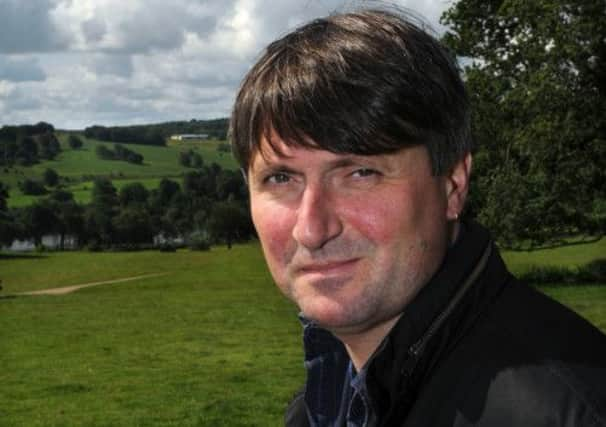Simon Armitage: Paying tribute to a titan of poetry


IT was Philip Larkin who once described Ted Hughes as looking like a “Christmas present from Easter Island.”
It’s a wonderful description of the former laureate who was not only a formidable poet but also a hugely charismatic man, whose aura many found difficult to resist.
Advertisement
Hide AdAdvertisement
Hide AdFellow Yorkshireman and poet Simon Armitage was among those who fell under his spell. He visited Hughes at his home in Devon several times as a young poet. “I was lucky enough to get to know him. He was a very generous man and his letters were very encouraging and radiated with ideas, he had a compulsion to write all the time.”
He says his conversations with Hughes were engrossing, if a little one-sided. “I was a bit in awe, but I think most people who met him felt a similar way. He had this wonderful speaking voice and what came out of his mind and mouth was always fascinating. Just to be around him was to experience the poetry of the man.”
Armitage, who was born in Marsden, in West Yorkshire, says Hughes was the first writer who made a real impact on him. “When I started reading his poems they just woke me up and gave me a real jolt,” he says. “Reading his animal poems, the words came alive on the page. There was a First World War poem called Bayonet Charge and reading it you felt as though you were experiencing what it was like to be on the Front, not just understanding it.
“It’s fair to say if it hadn’t been for Ted’s impact on me, I probably wouldn’t have put pen to paper.”
Advertisement
Hide AdAdvertisement
Hide AdArmitage – whose first collection of poems, Zoom!, was published in 1989 – says Hughes was more of an inspiration than a major influence. “There’s a very early poem called Things That Once Were which is very Hughesian and some other early scribblings were very Ted-like. But he was more of an inspiration in that he showed me I could do it, that you could draw on life and be brief and yet still explain and describe experiences – that’s what I took from him.”
He refers to his poetry as a kind of “gold standard” and says that while the work of some poets can be esoteric, Hughes’s has a broad appeal. “It has an immediacy to it, it’s not obscure and pretty much anyone can read his poems.”
Hughes was seen as a prodigious talent from the moment Hawk in the Rain was published in 1957. “He was brilliant from the off and very different. Being a nature poet at that time wasn’t very fashionable, poetry had become much more urbane. But he wanted to look at elementals and nature.”
Despite his popularity, Hughes’s reputation suffered in the wake of Sylvia Plath’s suicide in 1963. “Many people didn’t necessarily know his poems but they judged or viewed him against his association with Plath. During the 80s, in particular, there was a backlash against him, especially in America where Plath was a feminist icon and he suffered personally at the hands of all that.”
Advertisement
Hide AdAdvertisement
Hide AdHowever, Armitage – who is appearing at the Ilkley Literature Festival tomorrow when he will be discussing Hughes’s work alongside his own poetry – says Hughes remains a towering influence.
“For him poetry was a first language and a way of describing the world. He gave me the permission to write. He didn’t come from a family with any great literary pedigree but I felt if he could do it, then why couldn’t I?”
In 2011, Armitage was among those who attended a memorial to Hughes in Westminster Abbey’s Poets’ Corner.
“I went back there a little while back and looking around at all the graves there aren’t many names that people haven’t heard of. They don’t often get it wrong there, he’s in good company.”
Advertisement
Hide AdAdvertisement
Hide AdSimon Armitage is at the Kings Hall, Ilkley Literature Festival, tomorrow. For Tickets call 01943 816714.
Ted Hughes: Poetic Voice
Ted Hughes was born in Mytholmroyd, West Yorkshire, in August, 1930.
He studied at Cambridge University and in 1956 he met and married the American poet Sylvia Plath.
His first volume of poems, Hawk in the Rain, was published in 1957.
Sylvia Plath committed suicide in 1963.
Advertisement
Hide AdAdvertisement
Hide AdIn 1984 Hughes was appointed Poet Laureate, taking over from John Betjeman.
As well as being a poet, he wrote extensively for children and he also wrote plays and translated the work of, among others, Ovid, Aeschylus and Euripides.
He died in October, 1998.